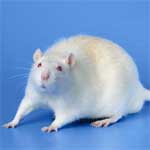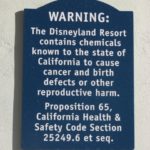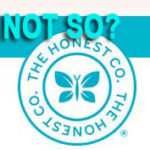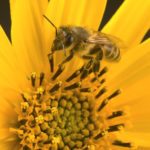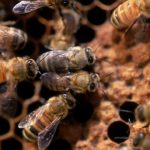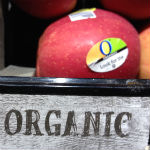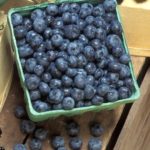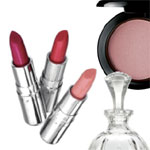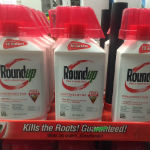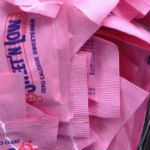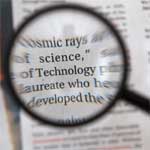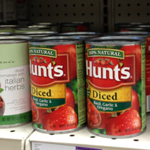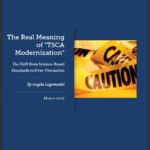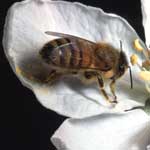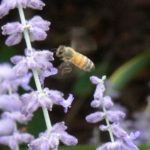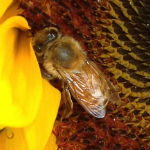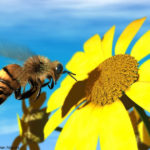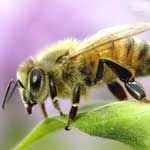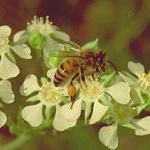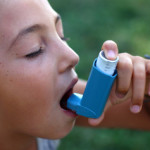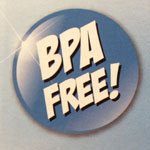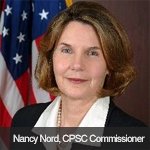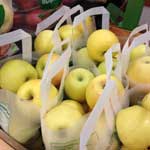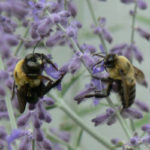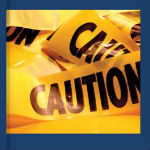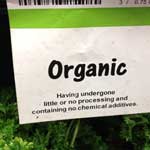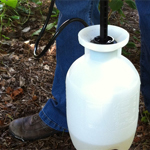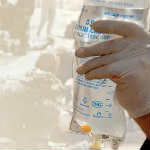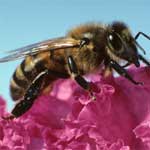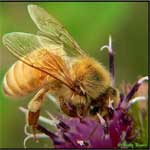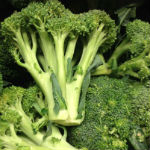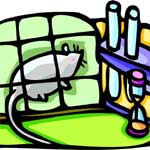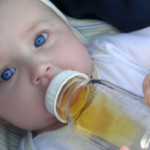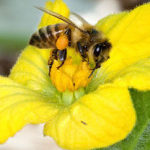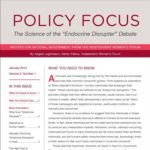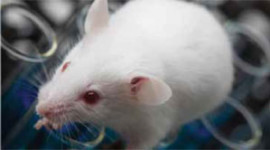"Dr. Oz Audience Down 50 Percent – So We’re Halfway There," by Ana-Marija Dolaskie. Healthcare experts across the nation are weeping in unison over the return of the Dr. Mehmet Oz Show, because it’s beginning its seventh season Monday and neither facts nor ethics can stop it. The news is not all bad, though. To say his show and reputation have taken a hit, thanks to the American Council on Science and Health spearheading a nationally publicized effort to get him removed from the faculty at … [Read more...]
Guerrilla War Against Chemicals Hits Starbucks
"The Guerrilla War Against Chemicals Extends To Starbucks," Pepsi, By Dr. Robert Lichter. The latest skirmish in the war of anti-chemical crusaders against the food industry broke out in an unlikely place – the usually tranquil waters of Starbucks’ pumpkin spice latte. Vani Hari, author of the widely read Food Babe blog, recently kicked up a fuss by charging that the popular drink contains a cancer-causing substance called 4-mei, which is a byproduct of its caramel coloring. As the name of her … [Read more...]
Difference between Health threats and Health Scares
"Health Scares At The Drop Of A Rat," By American Council on Science and Health. Beginning in 1976 with a book entitled Panic In The Pantry, the team of scholars that went on to found the American Council on Science and Health and to form its first trustees and Scientific Advisory Panel, have been clarifying, as the Wall Street Journal called our mission, the difference between a health threat and a health scare. By the mid-1970s, promoting fear and doubt about food and chemicals and the … [Read more...]
Chemophobia and the Precautionary Principle
"Prescribing Caution with Precautionary Principle," By Gil Ross. Not long ago, Tracey Brown, managing director Sense About Science , a British advocacy group that shares many interests with us here at the American Council, wrote an essay in The Guardian entitled “The Precautionary Principle is a blunt instrument.” To many in the chemophobic, anti-technology camp, the precautionary principle (PP) is akin to the 11th Commandment: Thou shalt make no scientific or industrial progress without first … [Read more...]
Prop 65: Lawyers’ Pilfering of Small Businesses
"Prop. 65 a Burden on Small Businesses, Bonanza for Lawyers," By Jospeh Perrone. California’s chemical labeling law, Proposition 65, has long been criticized for costing businesses millions in frivolous lawsuits without doing much to improve public health. Gov. Jerry Brown signed modest reforms into the law in 2013. But instead of helping curb these out-of-control lawsuits, newly released figures show the amount of money paid by businesses last year to settle Prop. 65 lawsuits actually … [Read more...]
Not So Honest Company?
"Jessica Alba’s Company Sued for Being Not-So-‘Honest.’" by Center for Accountability in Science. A few weeks ago, we highlighted the problems with sunscreen sold by Jessica Alba’s Honest Company—despite being “all natural,” many consumers reported it didn’t actually stop them from getting sunburned. Now, the Honest Company is being sued for its ineffective products and misleading marketing. The company is currently fighting two lawsuits. Read more. … [Read more...]
Reducing Food Waste with BPA
"Reducing Food Waste in Europe – BPA’s Contribution," by BPA Coalition. According to a new study carried out by scientists from the European Commission’s Joint Research Centre, Europeans waste an average of 123 kg of food per capita annually, or 16% of all food reaching consumers. In total, this would mean 47 million tons of food waste annually. Though there are many ways to better preserve and utilise food, packaging and canning food is one principle methods. Effective canning requires the use … [Read more...]
Myth about Honeybees’ Impact on Food Supply
"Pollinator myth: Are bees responsible for one third of global food, heightening crisis? More like 7%" by Genetic Literacy Project. Will the planet starve if bees disappear? Aren’t bees responsible for a significant chunk of the world’s food supply and nutrition, from one third to as much as 90 percent, depending on what advocacy group is making the claim? You hear such assertions invoked by advocacy groups, reported as truth by journalists and cited by politicians as accepted wisdom whenever … [Read more...]
Market Demand Ensures Honeybee Survival
"How Markets Benefit Honeybees and Mankind," By Angela Logomasini, Ph.D. After more than a decade of panicked reports about honeybees disappearing and potentially going extinct because of a phenomenon called “colony collapse disorder,” The Washington Post reported last week that the number of hives in the United States has reached a 20 year high. At the same time, I was making presentation at a meeting of the American Legislative Exchange Council, explaining that globally, there are more … [Read more...]
Organic Food Hoax
"The Colossal Hoax Of Organic Agriculture," By Henry I. Miller and Drew L. Kershen. Consumers of organic foods are getting both more and less than they bargained for. On both counts, it’s not good. Many people who pay the huge premium—often more than a hundred percent–for organic foods do so because they’re afraid of pesticides. If that’s their rationale, they misunderstand the nuances of organic agriculture. Although it’s true that synthetic chemical pesticides are generally prohibited, there … [Read more...]
“Natural” Food is Made of Chemicals
"'All Natural' Doesn't Make Food Safer, Healthier," By Dr. Joseph Perrone. Would you feed your kids a snack that includes ethyl ethanoate, 3-methylbutyraldehyde, butylated hydroxytoluene and linoleic acid? While many Americans would probably balk at loading up lunchboxes with these scary sounding chemicals, they're actually common compounds found in blueberries. Listing off hard-to-pronounce chemicals as a reason to avoid certain foods has been the basis of campaigns by activists such as the … [Read more...]
Paltrow Uses Junk Science to Sell Her Cosmetics
"Gwyneth Paltrow Whips Up Consumer Fears to Promote New Organic Cosmetics Line," by Center for Accountability in Science. Gwyneth Paltrow isn’t exactly known for giving the best health advice. She advocates “detoxing” by severe diet restrictions, saunas, and colonics to “flush out” toxins—treatments that are at best useless (as Frank Sacks, MD, of the Harvard School of Public Health says, the idea that you need to help your body get rid of toxins has “no basis in human biology”) and at worst … [Read more...]
Rounding Up the Facts about Pesticides in Breast Milk
"Science Trumps Hysteria When it Comes to Breast Milk and Pesticides," by American Council on Science and Health. The scientific literature has established that, when possible, breast milk offers terrific advantages to children, so it was the perfect way for anti-science groups to promote fear and doubt about a commonly used pesticide called glyphosate, which has been used by home gardeners for decades under the name Roundup. Though the U.S. Environmental Protection Agency has never found … [Read more...]
Aspartame Phase Out Unwarranted
"Pepsi Exchanges one Artificial Chemical Sweetener for Another Artificial Chemical Sweetener," By American Council on Science and Health. In just a few days, Diet Pepsi will no longer contain the artificial sweetener aspartame. PepsiCo is replacing aspartame in Diet Pepsi, Caffeine Free Diet Pepsi, and Wild Cherry Diet Pepsi with another artificial sweetener, sucralose (commonly known as Splenda), which is used in Coke Zero. The move follows consumer backlash against aspartame, and has … [Read more...]
Unscientific Cancer Classifications
"The UN’s Relentless March Of Unreason," By Henry Miller. Since the 16th century, the guiding principle of the science of toxicology has been that “the dose makes the poison.” In other words, toxicology tells us what quantity (dose) of a substance will cause harm. This applies to the medicines used by Americans hundreds of millions of times a day to help relieve symptoms or treat illnesses’ for example, the right dose of aspirin or an over-the-counter cold remedy can be a therapeutic godsend, … [Read more...]
Beepocalypse Narrative Doesn’t Pass Test
"Attempt to Breath New Life into Beepocalypse Narrative Doesn’t Pass Laugh Test, "by Genetic Literacy Project. It doesn’t take a peer-reviewed study to tell you that if you blot out the sun, plants won’t grow and solar panels are going to stop functioning. Or if a mammoth asteroid unexpectedly hit the earth tomorrow, it would cause enormous destruction. Or if… you get the point. Doomsday scenarios are great as sci-fi pulp or to bolster ideological campaigns, but such musings offer no practical … [Read more...]
“BPA-Free” Cans No Safer than Alternatives
"Green Advice On Canned Foods Belongs In The Trash," By Angela Logomasini, Ph.D. Go to the supermarket and you may notice canned food bearing the label “BPA-free.” It doesn’t mean those products are any better than others—although they may be more expensive. Environmental activists spawned the nonsensical demand for Bisphenol A-free packaging by focusing on spin rather than science. The latest example is the Environmental Working Group’s (EWG) report, “BPA in Canned Food: Behind the Brand … [Read more...]
Bisphenol F in Mustard — But Don’t Worry
"Bisphenol F in Mustard? No Problem!" by SaferFruitsandVeggies.com. Here’s a fact you most certainly didn’t know: Bisphenol F, another substance in the “bisphenol” group, is naturally formed in mustard, and humans have been ingesting it for a long time with little consequence. BPF, like BPA, is an endocrine active substance. Interestingly, according to a recent study from the Swiss Food Safety Administration (BLV), the average person takes in about three times more BPF from mustard consumption … [Read more...]
Roundup Junk Science
"If You’re Going to Pick Your Poison, at Least Choose the Right One," by American Council on Science and Health. The winner in this month’s “I need a chemistry lesson, and fast” award goes to Anthony Dunton of Acworth, Georgia. Hands down. Dunton was arrested last week for trying to poison a co-worker by putting the weed killer Roundup (glyphosate) into his water. Let’s just give him mixed grades on this one. Dunton denied trying to kill the man, but, rather, just “mess with him.” In this … [Read more...]
Kudos to McClintock
"Kudos to Rep. Tom McClintock for His Principled Stand," by Angela Logomasini, Ph.D. Last night, the U.S. House of Representatives passed its version of TSCA reform (H.R. 2576) by a roll call vote of 398 in favor, one opposed, and 34 members not voting. Yesterday, I lamented the fact that this bill was pushed through under suspension of the rules, which is supposed to be for low-cost, non-controversial bills, which is something that TSCA reform certainly is not. In any case, the issue is very … [Read more...]
Activists Threaten Nutrition for Expecting Moms
"Environmental Activists Threaten Nutrition for Pregnant Women," by Center for Accountability in Science. This week activists with the Environmental Working Group and Mercury Policy Project again slammed draft recommendations from the U.S. Food and Drug Administration urging pregnant women and children eat more fish—a valuable source of protein and many heart- and brain-healthy nutrients. The FDA is far from the only agency that believes the health benefits of fish should surpass concerns over … [Read more...]
Josh Bloom Takes on Environmental Working Group Junk Science
"Dr. Josh Bloom on Science 2.0: EWG’s Little Site Of Horrors," by American Council on Science and Health. Josh primary 10-13We have to wonder if Environmental Working Group is having a really bad fiscal quarter because their website has become littered with even more anti-science, scary chemical verbiage than usual. It’s clear they know what their donors think about actual science and evidence, since now they are going after the U.S. Food & Drug Administration for its “generally recognized … [Read more...]
EWG Junk Science
"Junk Science Comes Back and Bites the Environmental Working Group in the Can," by American Council on Science and Health. If there is a better example of what happens when junk science meets reality, good luck finding it. Look no further than today’s New York Times article about how a misguided attempt to solve a non-problem turned into a real problem. ACSH’s Dr. Josh Bloom says, “Let’s give (negative) credit to the ‘anti-BPA cottage industry.’ They have succeeded beyond their wildest dreams … [Read more...]
Chemophobia Exposé
"Headline: Can Your Bathmat Cause Cancer? Hey — Don’t Worry About It!" By American Council on Science and Health. In fact, this excellent essay doesn’t even mention bathmats — but it may have to, when the next version comes out. We tried not to mention the entire headline — really, we did — but in the end, we caved, so here it is: Why You Shouldn’t Care That Yogurt, Mouthwash, Red Meat, Burnt Toast, and Bras Have Been Linked to Cancer. This exposé by (Steven) Ross Pomeroy appeared in the Newton … [Read more...]
TSCA Bill Reaches House Floor
"Suspending Reason to Pass 'TSCA Reform'" by Angela Logomasini The process of lawmaking is often compared to sausage making: an unpalatable job that produces a palatable result. It’s easy to agree with the first part of that analogy, but in politics, the result isn’t always pleasant. Today, U.S. House of Representatives is scheduled to “suspend the rules” and pass its version of reform to the Toxic Substances Control Act (TSCA). This cursory approach is another example of the suspension of … [Read more...]
Toxic Lies
"The ‘Toxic’ Lies Behind Jessica Alba’s Booming Baby Business," by Julie Gunlock. Actress Jessica Alba, co-founder of the ironically named “The Honest Company,” recently declared, “One billion feels like a small number.” Alba was referring to her companies’ profits, made not by being honest with consumers but by spreading lies about her competitors. The Honest Company sells a variety of organic and eco-friendly baby and personal-care products, such as diapers, baby wipes, sunscreen, soap, face … [Read more...]
BPA Lined Cans Still Safe Despite Green Hype
"Should You Avoid Canned Food?" By the Center for Accountability in Science. The Environmental Working Group (EWG)—the same group that publishes a scaremongering annual report on sunscreen safety—is now trying to discourage the consumption of canned foods. In a new report, EWG argues that since a large amount of the canned items on consumer shelves use bisphenol A (BPA) in can linings, consumers should “limit or avoid canned food.” EWG claims BPA poses a health risk to consumers, but fails to … [Read more...]
The High Cost of Junk Science
"Bad Science Might be Costing Billions," By Center for Accountability in Science. Poor experiment design, accidental contamination, and inadequate data analysis are all major research problems we’ve pointed out on this blog. Now, a new study published in PLOS Biology estimates that problematic research that isn’t easily reproduced may be costing $28 billion per year. Of course, that doesn’t mean all those studies were complete wastes. Some studies included in that figure did find valid results, … [Read more...]
Chemicals and Junk Science
"Jack Dini vs. the World of Junk Science (and the Rest of the World)," by American Council on Science and Health. Talk about a big job. Writing for the Canadian Press, Jack Dini’s new piece, “Chemicals—Don’t Trouble Oneself With the Facts,” goes way past the title. Dini, who wrote a book entitled “Challenging Environmental Myths” (Institution of Engineering and Technology, 2003) comes out with guns blazing, and covers far more than chemicals. He writes about the inability of facts to change … [Read more...]
The Bees are Alright
"The Bees are Allright! Stop Worrying About Them and Start Worrying about the Science," by American Council on Science and Health. “The bees are ok”– that’s the message Terence Corcoran hammers home in his latest article for the Financial Post. The piece comes on the heels of Canada’s Minister of the Environment, Glen Murray, announcing that the country will start doing more for the “declining” bee populations. However, as Corcoran explains exhaustively with data, this policy is not only … [Read more...]
Save the Bees from Biofuel Mandates
"Save the Bees: Eliminate Biofuel Mandates," By Angela Logomasini. The Obama administration made a lofty promise with the launch of its National Strategy to Promote the Health of Honey Bees and other Pollinators. Over the next five years, the feds will implement an interagency campaign to restore and improve 7 million acres of “pollinator habitat.” That may be a laudable goal. But the strategy fails to address one of the biggest threats to pollinator habitat: federal biofuel mandates. Read … [Read more...]
Fracking No Threat to Drinking Water
"EPA Says Fracking Isn’t a Threat to Drinking Water," by American Council on Science and Health. The US government’s most comprehensive examination of hydraulic fracturing (“fracking”) and drinking water, which spanned four years, concluded that fracking, as it is being carried out and regulated, is not a threat to drinking water. “Hydraulic fracturing activities in the U.S. are carried out in a way that have not led to widespread, systematic impact on drinking water resources,” said Thomas … [Read more...]
Common Sense about Pesticides
"Some Common Sense About Pesticides. From the Daily Beast of All Places," by American Council on Science and Health. Screen Shot 2015-06-04 at 4.15.56 PMKudos to Kent Sepkowitz for his very smart piece in yesterday’s Daily Beast. The title alone—Today’s ADHD Blame Game: Pesticides—suggest critical thinking about chemical toxicity—something that is very rare in these days of one phony scare after another—is being applied. Indeed Sepkowitz uses just that, and does so brilliantly. In addition to … [Read more...]
Popcorn Chemical Scare
"Chemicals In Your Popcorn? asks the Times’ Kristof. Yes, There Are," By American Council on Science and Health. We have often taken note of the Times’ columnist Nicholas Kristof’s rants expressing his concerns about various chemicals and substances he fears in his (and our) everyday environment. Here are some of the issues with which he and we have disagreed over the past 2-3 years ... He has expressed his deep concerns about the usual paranoid, chemophobia targets: endocrine disruptors, BPA … [Read more...]
Pork-Barrel and the Pollinators “Strategy”
"Of Pork-Barrel and Pollinators," By Angela Logomasini, Ph.D. The Obama administration has finally released its long-awaited National Strategy to Promote the Health of Honey Bees and other Pollinators. It’s the federal government’s answer to the alarming claims that honeybees are disappearing, threatening many crops that rely on the bees for pollination. While it’s not clear what this strategy will achieve for the bees, we can be sure it comes with lots of government handouts, pork-barrel … [Read more...]
Dismiss Junk Science on Autism Causes
"Discard the Junk Science on Autism," By Dr. Joseph Perrone. What do Sean Penn and Robert F. Kennedy, Jr. have in common? They’re both wealthy celebrities pushing new documentaries that make dangerous, unproven claims about the causes of autism. The rate of autism diagnoses has indeed skyrocketed in the past 20 years from 1 in 10,000 to 1 in 68. However, as the Centers for Disease Control and Prevention (CDC) points out, a large (though not the only) factor in that dramatic jump is increased … [Read more...]
Colonies Collapsing?
"Are bee colonies collapsing? If so, why? If not, why all the hype?," By American Council on Science and Health. Last June, in response to ongoing concerns about the perceived loss of bee colonies, often referred to as “bee colony collapse disorder (BCCD),” President Obama established a multi-agency “Pollinator Task Force.” The panel’s mandate: investigate the various data on the health of bees in the U.S., and if a valid threat was detected, to determine the cause or causes and make … [Read more...]
Grading the Pollinator Strategy
"Grading The President's Strategy To Promote Bee Health," By Hank Campbell. In 2006 there was a serious decline in the number of honey bee colonies in parts of Europe and the United States and it brought renewed concern about another Colony Collapse Disorder, which had last occurred in the mid-1990s. Bee colonies rebounded quickly and are higher than ever but the question lingered; what caused these periodic collapses? Answers ranged from pests to viruses and pesticides and studies did nothing … [Read more...]
EWG’s Sunscreen Smoke Screen
"Are there ‘Worrisome’ Ingredients in Sunscreens?" By Center for Accountability in Science Staff. Memorial Day is just around the corner, which for many Americans signals the opening of swimming pools and the beginning of beach vacations. For the Environmental Working Group (EWG), it’s the opportunity to release its scary annual report about the “danger” posed by most sunscreens on the market. This year, EWG’s splashy new finding is that “80 percent of 1,700 products we examined this year offer … [Read more...]
Wine Alarmists
"Wine Alarmists Should Stick a Cork In It," By Julie Gunlock. I’m a mom of three young kids. That means I like to have a glass of wine with breakfast, lunch, and dinner now and then. And since my kids seem to grow out of their clothes and shoes seconds after I’ve purchased them, I like to get a good deal on a box bottle or two. Luckily for me, there is stiff competition in the wine industry, which means I can get wines from around the world at prices I can afford. Yet with competition comes … [Read more...]
Honeybees and Pork-Barrel Politics
"Saving the Bees vs. Pork Barrel Spending," By Angela Logomasini. The Obama administration has finally released its "National Strategy to Promote the Health of Honey Bees and Other Pollinators." It's the federal government's answer to all the hype found in the news related to the health of the nation's honeybee hives. While it's not clear what it will achieve for the bees, we can be sure it comes with lots of pork-barrel spending, government handouts, and shortsighted pesticide polices that … [Read more...]
Honeybee Policy Should Use Facts not Alarmism
"U.S. Pollinator Policy Should Focus on Facts Rather than Alarmism," By Angela Logomasini, Ph.D. The House Agriculture Subcommittee on Biotechnology, Horticulture and Research held a a hearing on “pollinator health” on May 13 to discuss a national strategy designed to improve honeybee health. Hopefully, U.S. regulators and legislators will not move too quickly on a strategy that is governed by alarmism; rather, they should take a deliberative approach that is based on science and good … [Read more...]
Honeybee Nonsense
"On Bee Enslavement and Other Nonsense," By Angela Logomasini, Ph.D. I’ve seen many crazy headlines about the challenges facing honeybees, but this one takes the cake: “Bee collapse is the result of their enslavement in industrial monocultures.” So now, not only are humans “killing off” bees, we are “enslaving” them! According to this article, “industrial agriculture” is the problem and technological approaches won’t help things. However, the authors don’t offer much of any solution other … [Read more...]
Green Agenda on Bees
"Bee Facts Change – Green Agendas Don’t," by Paul Driessen. U.S. Department of Agriculture annual beekeeper surveys reveal that the number of honey-producing hives in the United States has held steady at about 2.5 million since 1995. Indeed, the numbers increased four of the last five years and are actually higher now than when neonics first came on the market in the mid 1990s. Most beehive problems now involve less experienced hobby beekeepers. A similarly hyped issue, “colony collapse … [Read more...]
The Right Chemistry on Teflon
"Dr. Joe Schwarcz’ “'The Right Chemistry' on Teflon and Related Chemicals," By American Council on Science and Health. We have lavished well-deserved praise on McGill University’s Dr. Joe Schwarcz on several occasions over the years. Unlike many of his “science-y” colleagues whose news media megaphones take the sensationalist, “sky is falling” approach to trace levels of anything in the environment, he usually presents a voice of reason amidst the clamor. So it was in his column in a recent … [Read more...]
Effects of the Idiotic Governmental Policy on Asthma Inhalers
"An Idiotic Governmental Policy That Will Take Your Breath Away—Literally," by American Council on Science and Health. When it comes to government policies regarding health policy, we’ve seen pretty much every type: Meaningless, but mostly harmless, anti-science, money driven, and ill-conceived and harmful. Some of these (the full list would shut down the Internet) include the Hatch DSHEA act of 1994, which allowed untested drugs to be sold under the guise of “food supplements,” state laws that … [Read more...]
Science in Retreat
"Chemophobia Rampant, Science In Retreat. It Cannot End Well," By Gil Ross. The baseless, superstitious fear of chemicals has certainly gripped our supposedly advanced population in a haze of inchoate panic akin to the residents of 17th century Salem, or Europeans of the Dark Ages. Sadly, science ignorance pervades our populace, largely because the perception is "Who cares?" or “How do I know what to believe?” And perhaps even more important: "Do I really need to know that?” Yes, you do. Read … [Read more...]
Handmade Soap Under Attack
"Big Cosmetic And Sen. Dianne Feinstein Go After Your Handmade Soap," By Hank Campbell. What do you have when someone declares that organic food should be separate from USDA oversight but organic soap should have special oversight if it is not made by a large corporation? A California politician. In this case, Senator Dianne Feinstein (D-Calif.), who is obeying the wishes of every large cosmetics corporation and siccing the Food and Drug Administration on 300,000 primarily woman-owned handmade … [Read more...]
New Bee “Crisis”
"The New Bee Crisis Is Just Like The Old One: Phony," by Henry I. Miller. Never let a good crisis go to waste, Rahm Emanuel famously said. But what do you do if the “crisis” turns out to be a dud? Easy–invent a new one. That’s what we’re seeing currently in Washington and Brussels, where government regulators, deprived of one environmental calamity–by, of all things, data–are scrambling for a new narrative. For years environmentalists have been raising alarms about the “bee-pocalypse”–a … [Read more...]
Lowes and Home Depot Sell Out to Activist Junk Science
"Stupid-Strategy Sweepstakes: Home Depot vs. Lowe’s," By Jeff Stier & Henry I. Miller. Both of the nation’s retail hardware behemoths, Home Depot and Lowe’s, recently sold out to activists in ways that are the corporate equivalent of a dog’s putting his tail between his legs and slinking away from a bully. Home Depot announced that by the end of this year it will stop selling vinyl flooring that contains a class of chemicals called phthalates. It described the move as an effort to … [Read more...]
BPA on Prop65
"BPA to Join California’s Proposition 65 List. Who Cares?" By American Council on Science and Health. We have been discussing BPA—a component of polycarbonate and polyether plastics—forever. This should be #1000 on your list of things to worry about (#999 is being hit by a giraffe that fell off a skyscraper.) It doesn’t matter what we say. The Environmental Working Group, and other geniuses have devoted their lives to finding something dangerous about it. Even though they failed in that quest, … [Read more...]
The Politics of Regrettable Substitutions
"How Does the Government Decide What Is — and What Is Not — ‘Toxic’?" By Henry I Miller, M.D., MS and Angela Logomasini, Ph.D. An increasingly frequent and worrisome phenomenon that unnecessarily threatens human health and the natural environment is “regrettable substitutions,” which refers to bans or limitations on certain products, even though the alternatives might pose risks that are uncertain or greater. It calls to mind the old saying “out of the frying pan and into the fire.” Today, … [Read more...]
Demonizing Formaldehyde
"Demonizing Formaldehyde For Fun And Profit," By Michael D. Shaw. Formaldehyde is a simple and ubiquitous molecule, used in countless products and industrial processes. The compound is synthesized by virtually every life form, and does not accumulate in the environment. However, since formaldehyde (along with everything else) is a “chemical,” greedy fear entrepreneurs are more than willing to scare the public. In so doing, they not only extract millions of dollars in dubious donations, they … [Read more...]
NY Times: Scaring the Public about Nothing
"Chemophobia Week, Led by the NY Times, Scaring the Public about Nothing," by American Council on Science and Health. While real health threats abound, including smoking, obesity, diabetes, vaccine denialism and its attendant epidemics, Alzheimer’s Disease — just to name a few most in need of consciousness-raising through effective public health education — many seemingly responsible, respected groups and spokesmen have decided instead to take the easy path to fear-mongering and alarmism. We … [Read more...]
Consequences for Dr. Oz’s Advice
"Some Consequences for Dr. Oz’s Flim-Flam'Medical' Advice," by American Council on Science and Health. While hardly commensurate with his unscientific and potentially harmful medical advice, Dr. Oz has received two negative reactions to his unprofessional behavior on his TV show over the past 24 hours. Yesterday, word spread quickly that his former mentor and the entertainment force most responsible for glamorizing his brand of medical nonsense, none other than Oprah Winfrey herself, had at … [Read more...]
A MUST-READ LETTER TO DR. OZ
"A Letter to Dr. Oz from a PhD Microbiologist," by Alex B. Berezow. Dear Dr. Oz, As a TV host, book author, and "America's Doctor," you hold a powerful and privileged position to which few people inside or outside your profession could ever aspire. I must admit to being envious of your influence. I wish that more Americans were fascinated by the complicated nuance of biomedical research than are fascinated by miracle cures. Alas, they are not (yet). I'm working on it, though. I am writing to … [Read more...]
Pay No Attention to that Man (Dr. Oz) Behind the Curtain
"Who Dares Question the Mighty Oz?," By Angela Logomasini. Yesterday, Dr. Mehmet Oz launched his “counter attack” on several doctors who sent a letter last week to the dean of Columbia University’s medical department complaining about controversial positions and advice that Oz has offered on his show. Oz, who holds faculty and administrative positions at Columbia, exclaimed that he “will not be silenced” by his critics, casting the issue as an attack on his freedom of speech. In an article for … [Read more...]
Dr. Oz: A Mea Culpa?
"Dr. Oz: A Mea Culpa Or Finally Aware?," Hank Campbell. On today's "Dr. Oz" television show, Dr. Mehmet Oz finally addressed what has worried some and infuriated others about his media career; the show addressed the possibility that a gifted medical professional with too many awards to count had gone off the alternative medicine deep end. It seems he really hasn't been faking it for a paycheck, because he is not that good an actor. He believes what he says, even if it is wrong. And some of it … [Read more...]
BPA No Risk to Babies
"New Study Challenges Assumptions about BPA and Babies," By Center for Accountability in Science. Bisphenol-A (BPA) is everywhere–it’s a key ingredient in plastics, used in the lining of cans, and countless other applications. Even after it was phased out of baby bottles and sippy cups, researchers have still found levels of BPA in infants. And even though recent comprehensive reviews of BPA research by the U.S. Food and Drug Administration and European Food Safety Authority concluded BPA poses … [Read more...]
The Dirt On Earth Day: Chemophobia
"The Dirt On Earth Day: Chemophobia Masquerading As Environmentalism," By Henry I. Miller and Kavin Senapathy. Wednesday will be the 45th anniversary of the first Earth Day. Founded by then-U.S. Senator Gaylord Nelson (D-Wisconsin), it was held in 1970 as a “symbol of environmental responsibility and stewardship.” In the spirit of the time, it was a touchy-feely, consciousness-raising, New Age experience, and most activities were organized at the grassroots level. A driving force of … [Read more...]
What’s Really Threatening Honeybees
"Rash Regulation Is What's Really Threatening Honeybees," Angela Logomasini. The honeybee is a powerful symbol of nature’s generosity given that these industrious critters pollinate crops around the world. Green activist groups and others are capitalizing on that symbol to spread fear and misinformation—to advance an unrelated crusade against agrochemicals. Unfortunately, if regulators continue to accept activist-generated spin, not only will food production suffer, honeybees will as well. This … [Read more...]
Former Commissioner Condemns CPSC “Science” on Phthalates
"Former CPSC Watchdog Condemns her Former Agency for Biased, Unacceptable Junk Science," By American Council on Science and Health. In an article in The Hill, former Consumer Product Safety Commission member (2005-13, Acting Chair 2006-9) Nancy Nord calls it like it is regarding the shoddy, biased job the CPSC did in evaluating potential human risks from a commonly used phthalate, DINP. Hear her dismay in the title, Using poor science and stale data to support flawed policy. Not much more needs … [Read more...]
Dr. Oz Rebuked For Quackery
"Dr. Oz Rebuked by Medical Professionals," By Angela Logomasini. For a long time, TV personally and Cardiothoracic surgeon Dr. Mehmet Oz has gotten little criticism for his sensationalist and often junk science-laden advice. Finally, members of Congress from both parties called him to the table—asking him to appear at congressional hearings related to fraudulent claims about dietary supplements and other products. A largely unapologetic Oz said ,“I actually do personally believe in the items I … [Read more...]
Give Oz The Boot
"Dr. Henry Miller To Columbia: Give Oz The Boot," By Josh Bloom. Although I have done my share of writing on Dr. Oz (much of it humorous, and some just in poor taste), the following has nothing to do with me. Dr. Henry Miller, a Robert Wesson Fellow in Scientific Philosophy and Public Policy at the Hoover Institution, who writes regularly about matters concerning junk science and medicine, and their effect on public health policy, has decided to take matters into his own hands. In a letter to … [Read more...]
The Dose Makes the Poison
"Dr. Perrone: The Dose Makes the Poison," by Dr. Joseph Perrone. Too much of anything is rarely good for our health. As we recently learned from an Arkansas man's scary experience, drinking a gallon of iced tea every day could cause kidney failure. Even water can be deadly—drinking too much, too fast can lead to a dangerous condition known as water intoxication. The small risk of health issues from drinking way too much tea or water shouldn't stop us from hydrating. But we're constantly being … [Read more...]
Medical Professionals Speak Out About Dr. OZ
"Dr. Henry Miller Looks Behind the Curtain and Others Finally," By American Council on Science and Health. Yesterday we reported that ACSH friend, Dr. Henry Miller of the Hoover Institute, wrote a very blunt letter to Dr. Lee Goldman, the Dean of the Faculties of Health Sciences and Medicine at Columbia University, calling for the removal of Dr. Mehmet Oz from the faculty at the university. The beginning of Miller’s letter read, “We are surprised and dismayed that Columbia University’s College … [Read more...]
What is the Biggest Challenge to Honeybee Hive Health?
CLAIM: Colony Collapse Disorder is the biggest threat to honeybees. REALITY: CCD is a relatively small threat to honeybees compared to other well-known challenges. "With a third of honeybee colonies disappearing due to ‘colony collapse disorder,’ it’s time to move into high gear to find a solution,” claims one Mother Jones article on the topic. But to find a solution, we need to understand the problem, and CCD is really not the main challenge facing honeybees. Not all … [Read more...]
Flawed Data = Flawed Phthalates Rule
"Using Poor Science and Stale Data to Support Flawed Policy," By Nancy Nord. In 2008, after lead-contaminated toys and other products from China wound up on American store shelves and forced product recalls, Congress rushed to pass legislation intended to protect Americans, giving the Consumer Product Safety Commission -- a small and relatively unknown federal agency-- sweeping new regulatory authority. Now, nearly seven years after that scare, it is increasingly clear that the new powers … [Read more...]
Dr. Oz Rejects Science on BPA
"Dr. Oz Exaggerates Scientific Findings…Again," By Center for Accountability in Science. In their recent column, Dr. Mehmet Oz, host of “The Dr. Oz Show,” and Mike Roizen, of the Cleveland Clinic once again spread misinformation about the safety of Bisphenol A (BPA). Dr. Joseph Perrone of the Center for Accountability in Science wrote a letter to the editor in response: "The recent column by Drs. Mehmet Oz and Michael Roizen (“Get the science behind BPA’s risk to your health,” March 31) … [Read more...]
Round-Up on IARC Cancer Classification
"Another Party Weighs in on the IARC-Glyphosate Charade," By American Council on Science and Health. Thanks to Angela Logomasini’s Safe Chemical Policy News, we learned of another academic organization’s disdain for the methods used by the International Agency for Research on Cancer (IARC), an arm of the WHO, in their process of evaluating the widely-used herbicide, glyphosate, among other pesticides. Better known as Roundup by Monsanto, glyphosate has been increasingly used subsequent to the … [Read more...]
More Bee-fuddling Claims from the NYT
“'Pesticide Linked to Bee Collapse May Pose More Risks': Pure junk From the EU and The NYTimes," By American Council on Science and Health. For some reason, or perhaps not, safe and effective modern pesticides of the “neonicotinoid” class (“neonics”) have had a target painted on them by anti-chemical activists based in Europe, for about a decade now. Ironically, these chemicals were developed in response to (baseless, but politically potent) claims of adverse health effects of older classes of … [Read more...]
EWG’s Dirty Claims About Apples
"Pay No Attention to the Man Behind that Apple," By American Council on Science and Health. Yawn. It’s that time of year again. Perhaps for the lack of anything better to do, Ken Cook and his Environmental Working Group (EWG) merry men (and women) are celebrating “World ‘Let’s Promote Ignorance’ Day,” thanks to their annual “Dirty Dozen” list. And, guess what? The “mutant apples from hell” have had the privilege of being the dirtiest for the fifth straight year. And if you happen to be eating … [Read more...]
Good News Regarding Cancer Rates
"New CDC/ACS Report on Cancer Shows Continued Good News," By American Council on Science and Health. ...[T]the CDC and the ACS jointly issued yesterday the Annual Report to the Nation on the Status of Cancer, 1975-2011. ...And these facts include: an ongoing trend in major declines in cancer deaths on all fronts, thanks to improvements in diagnosis and treatments, including immune-based therapies (often personalized), regular chemotherapy but with less toxicity and more targeted focus, and more … [Read more...]
Private Action Will Help the Bees
Today, the Competitive Enterprise Institute published my paper on the honeybee health issue and pesticide use. We have had several media outlets ask, why is CEI focused on the honeybee issue now? If you read this blog, you know that I have been writing about pesticides and their impact on public health and well-being for at least a decade and a half. CEI selects issues based on our goals to promote freedom and prosperity, using the market to advance public health and well-being. I focus on … [Read more...]
No Safety Reason for TSCA Reform
"TSCA Reform Debate Is Not about Public Safety," by Angela Logomasini. At recent hearings on the the Frank R. Lautenberg Chemical Safety for the 21st Century Act (S. 697), senators, environmental activists, and local government officials claimed that the Toxic Substances Control Act (TSCA) law is not sufficient protect public health. As I have argued before, that’s certainly not the case.There may be an economic reason to reform this law—to preempt a growing patchwork of nonsensical state-level … [Read more...]
From “Carcinogen” to Cancer Treatment
"Artificial Sweeteners: Cancer Causing or Cancer Curing?" by Center for Accountability in Science. In case you needed further evidence that scientific opinion is constantly changing, new research presented this week finds evidence that saccharin, an artificial sweetener found in brands like Sweet ‘N Low ®, may be a tool in treating cancer. The researchers found that saccharin binds to a protein found in many cancerous cells, carbonic anhydrase, disrupting its activity and potentially stopping … [Read more...]
IARC Classification of Glyphosate
"IARC Glyphosate Cancer Review Fails on Multiple Fronts," By Academics Review. The International Agency for Research on Cancer Monograph evaluation of certain insecticides and herbicides earns an F grade for failure to consider all the available studies, placing weight on weak and discredited studies (several in the advocacy community are already using this report claiming it is a vindication of the discredited Seralini GMO cancer claims), and most importantly failure to consider if glyphosate … [Read more...]
Organic Farming: “Natural” not Always Best
"Why Organic Can't Fulfill Our Food Supply Ideals," By Steve Savage. Almost any farmer or consumer could agree on the following ideals for our agricultural system: "Farming in ways that are best for us, best for the environment, and best for providing an adequate food supply." I believe that these are the goals and ideals of organic customers and organic farmers, and I share them. If organic could deliver on these “triple best” goals, I would be among its strongest supporters, but I don't … [Read more...]
Newsweek’s BPA Alarmism
"Newsweek's Chemical Alarmism," by Julie Gunlock. Newsweek really needs to do some fact checking. In a piece that ran last week on the safety of the chemical Bisphenol-A (commonly called BPA), writer Douglas Main couldn’t even do a simple Google search on his sources before publishing the piece. He writes (emphasis mine): "To date, there have been around 1,000 animal studies on BPA, and the vast majority show that it causes or is linked to many health problems, from alterations in fertility to … [Read more...]
Arsenic in Wine
"Arsenic in Wine: Dangerous or Beneficial?" by Angela Logomasini. Dan Nosowitz in Modern Farmer offers some insights on the recent class action lawsuit filed against California winemakers. The plaintiffs found that some inexpensive wines contained arsenic at levels exceeding the federal drinking water standard for this substance. Nosowitz rightly points out that the standard is for water, not wine and “people don’t, or shouldn’t, drink as much wine as water.” Read more. … [Read more...]
CPSC’s Selective Use of Data for Phthalates Study
"Data Torturing at the CPSC," By Angela Logomasini. James Mills of the National Institute of Child Health and Human Development lamented in an article in the New England Journal of Medicine back in 1993: “‘If you torture your data long enough, they will tell you whatever you want to hear’ has become a popular observation in our office. In plain English, this means that study data, if manipulated in enough different ways can prove whatever the investigator wants to prove.” Government regulators … [Read more...]
IARC’s Ruling on Glyphosate
"IARC’s Ruling on Glyphosate Ignores the Science," by American Council on Science and Health. This month’s meeting in Lyon, France, of the International Agency for Research on Cancer (IARC) – the branch of the UN’s World Health Organization that studies the relationship between environmental and lifestyle risk factors and cancer – focused on pesticides. The committee concluded that of the five pesticides evaluated, three were “probably carcinogenic,” a 2A classification, despite the fact that … [Read more...]
“Frog-pocalyspe”
"Apparently The Frog-pocalypse Is Still A Thing," By Hank Campbell. Lost in all of the hype and hysteria and White House panels on how industry is killing bees is the last indicator species that was being doomed by non-organic pesticides: frogs. It seems like a hundred years ago but it was only last decade that a biologist in a department at Berkeley got a friend of his, a member of the National Academy of Sciences, to hand-walk a paper on frogs past peer review and into PNAS - the Proceedings … [Read more...]
ACSH Comments to CPSC on Phthalates
"ACSH submission to CPSC re: Chronic Hazard Advisory Panel (CHAP) report on DINP" By American Council on Science and Health. Dear Chairman Kay: The American Council on Science and Health (ACSH) wishes to express our deep disappointment in the conclusions of the U.S. Consumer Product Safety Commission (CPSC) regarding the plasticizer chemical, diisononylphthalate (DINP). ACSH and our Scientific Advisory Panel, numbering 360+ experts and academicians, are concerned about the validity of the data … [Read more...]
CPSC’s Scientific Shenanigans
" CPSC's Scientific Shenanigans on Phthalates," Angela Logomasini. Many “stakeholders” have complained about the process through which the Consumer Product Safety Commission (CPSC) developed its proposed rule related to a class of chemicals called phthalates—and rightly so. In particular, the agency’s failure to allow public comment and open peer review of its Chronic Hazard Advisory Panel report (CHAP report) underscore the fact that bureaucrats want to avoid scrutiny that might hold them … [Read more...]
No Worries about Arsenic in Wine
"Dangerous Levels of Arsenic in Wine? Not So Fast," by Center for Accountability in Science. The internet has been buzzing about a new lawsuit claiming that popular wine brands contain “extremely high levels of arsenic.” But a closer examination of the “research” behind this lawsuit and the scary headlines shows that wine lovers don’t really have much to worry about. The plaintiffs are comparing the level of arsenic found in wine with the U.S. Environmental Protection Agency’s limit for … [Read more...]
CPSC Proposal on Phthalates Likely Harm
"CPSC Proposal on Phthalates Likely to Do More Harm than Good," by Angela Logomasini. On Monday, the Consumer Product Safety Commission will close the comment period for a proposed rule related to chemicals used to make soft and pliable plastics. While they claim to do this in the name of children’s health, it’s not clear that the rule will do more good than harm. The process and the “scientific” review that brings us to this proposed rule has been controversial, to say the least. I detail … [Read more...]
Bee Colonies Increase
"Bee Colonies In 2014 Increase Another 4 Percent," by Hank Campbell. The National Agricultural Statistics Service of the United States Department of Agriculture has released its honey report for 2014 and found it's boom times for bees. Hives increased again, another 4 percent, up to a whopping 2.74 million colonies, and honey production is up 19 percent. Yield per colony averaged 65.1 pounds, which is up 15 percent. Read more. … [Read more...]
Pesticides Don’t Cause Bee Colonies to Collapse
"EPA Study Finds That Neonics Not Causing Colony Collapse Disorder In Bees," By Hank Campbell. A few years ago, bees suddenly had a sharp decline in numbers. This "Colony Collapse Disorder" as it is called, is a disorder in the sense that it is a recurring phenomenon, detailed for the last 1,000 years even when record-keeping just consisted of sporadic anecdotes. It was noted more frequently as record-keeping became more thorough. so it appeared far more often by the 1800s. By the 1900s, … [Read more...]
Safety Rules for Laundry Detergent Packets All Wet
"Congresswoman Calls for New Safety Rules on Detergent," by Paula Bolyard. Rep. Jackie Speier of California is proposing a bill directing the Consumer Product Safety Commission to issue new rules establishing safety standards for liquid detergent packets. The Democrat Speier’s bill, the Detergent Poisoning and Child Safety (PACS) Act, directs the CPSC to impose new regulations on the color, design, and contents of detergent packets. Read more. … [Read more...]
Nord: CPSC US Flawed Data for Proposed Phthalates Rule
"Phthalates NPR: Flawed Theory Supported by Flawed Data," by Nancy Nord. On March 16, 2015, the comment period will close for the CPSC’s proposed rule banning specified concentrations of phthalates in children’s toys and child care articles. While those who make and use phthalates are well aware of this proceeding, it has much broader implications for the entire regulated community. The proposed rule is flawed not only in terms of substance but also of process. The manner in which it used a … [Read more...]
EWG Discredited by Scientists
"Discredited by Scientists, Ignored by Media - It's Time for EWG to Retire Decades Old 'List'" by SafeFruitsandVeggies.com. A five-year analysis of media coverage of the Environmental Working Group’s (EWG) so-called “dirty dozen” list shows a steady decline in overall coverage, unbalanced coverage and consumer reach. And last week, when EWG released its 2015 list, mainstream media outlets largely ignored the “list” and coverage dropped to negligible levels. Until 2010, EWG’s list had become one … [Read more...]
Scientists Critical of Media Reporting
"Scientists Blast Media Treatment of Science Stories," by Center for Accountability in Science. Effectively communicating complex research and scientific data to the public is incredibly challenging. While many scientists rely on the media to cover their work, a new survey from the Pew Research Center finds that most scientists think the media’s treatment of science stories poses serious problems. Specifically, the survey found: Read more. … [Read more...]
Questions for EWG
"A 'Half Dozen' Questions for EWG," by SafeFruitsandVeggies.com. As they have for the last 20 years, the Environmental Working Group (EWG) released its “dirty dozen” list today which inaccurately disparages many of the most popular fruits and vegetables. To correct and counter the misinformation promoted by EWG, the Alliance for Food and Farming (AFF) provides science-based information to consumers which clearly show the safety of these popular fruits and veggies and the nutritional benefits … [Read more...]
Atrazine in the News
"Atrazine Back in the News, Unfortunately, Thanks to EU’s Precaution," by American Council on Science and Health." EU Parliament, StrasbourgAtrazine, one of the most effective and commonly used herbicides (weed-killers) in the world, is back in the news. Today’s New York Times’ international business article discusses disparities in regulations that complicate Trans-Atlantic trade. Specifically referenced is the gulf that exists between American and European regulations of chemicals and … [Read more...]
Many Factors Behind Colony Collapse Disorder
"What Makes Honeybee Colonies Collapse?" by Joe Ballenger. Honeybee Colony Collapse Disorder has always interested me, because I’m interested in insect pathology – and this is probably the most important insect-pathology related event we’ll see in our lifetimes. I’ve written about CCD here at Biofortified, first in my post Colony Collapse Disorder: an Introduction. I followed this up with Are Neonicotinoids the Cause of Colony Collapse Disorder, where I talked about why the pesticide topic … [Read more...]
No Surprise: BPA is Safe
"Fed Wasted Millions on Activist-Spawned Media Frenzy About BPA Risks," By Angela Logomasini. After a decade or more of alarming headlines about the chemical Bisphenol A (BPA), you may be surprised to learn that it poses no significant health risks to humans, according to a recent European Union safety assessment. While such strong conclusions from a governmental agency may be politically surprising, the underlying science shouldn’t be. BPA is a chemical used to make hard-clear plastics and … [Read more...]
Neonicotinoid Ban in Europe Only Helps Pests
"Pests Invade Europe After Neonicotinoids Ban, With no Benefit to Bee Health," by Rebecca Randall. This month, more than 100 natural food brands, including Clif Bar and Stonyfield, joined together in a drive to encourage the Obama Administration to ban pesticides linked to bee deaths. The culprit, they say, is neonicotinoids, which is a class of chemicals commonly called neonics, introduced in the 1990s, that are mostly coated onto seeds to help farmers control insects. ...Yet, as activists … [Read more...]
BPA Exposure Deemed Safe, Again, Again and Again
"Exposure To BPA – It’s Not What Some People Think," By Steve Hentges. Both the European Food Safety Authority (EFSA) and the U.S. Food and Drug Administration (FDA) have recently released assessments that strongly support the safety of bisphenol A (BPA). In both cases, a body of studies documenting 1) low exposure, primarily from the diet; 2) efficient metabolism as BPA is absorbed in the gut; and 3) rapid elimination from the body provide key support for the safety conclusions. In contrast, a … [Read more...]
The Science of the ‘Endocrine Disrupter’ Debate
"Policy Focus: The Science of the 'Endocrine Disrupter' Debate," By Angela Logomasini. Americans are increasingly being told by the media and environmental activists that common consumer goods—from plastics to cosmetics to flame retardant-furniture—contain chemicals that endanger their health. These chemicals are referred to as “endocrine disrupters.” The activists charge that they affect our hormones, cause cancer, harm our children’s health, affect fetal development, and even make us fat. … [Read more...]


